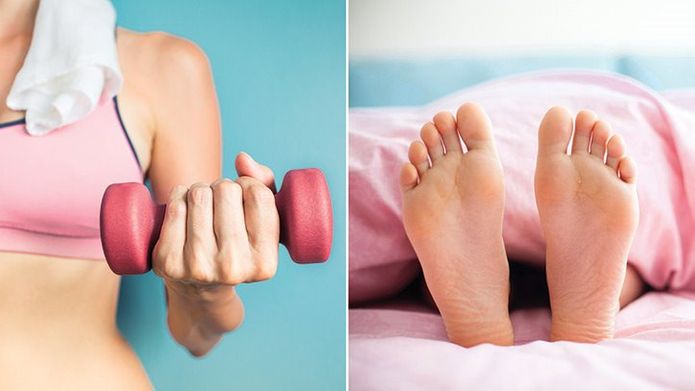Are you getting enough quality sleep everyday? Are you feeling restless while you are sleeping, keep tossing and turning in the middle of the night and unable to go back to sleep? Awaken feeling not fresh and even sleepier than ever before, feeling so tired and fatigue. Millions of American suffering from sleep deprivationMost experts recommend 7 to 9 hours for adult, and up to 10 hours for adolescents and teens per night. Although, of course, it’s not easy to convince a teenager the value of sleeping compare to the late-night computer games or text messaging with friends.Sleep problems often go untreated. While stress, hectic pace or getting older is attributed to insomnia, sleep difficulties may also be caused by a variety of illnesses, medications or lifestyle factors such as work schedule or caffeine consumption. In fact, sleeping problems have reached epidemic proportions in America, with about one-third of the adult population reporting suffering from sleep deprivation.While a few nights of sleep loss may hardly be noticed, cumulative sleep loss might cause fatal effects.
If one does not get proper rest and enough sleep, one tends to become irritable and frustrated. If fatigue dominates the day, it caused the decreased in quality of life. The body becomes tense and achy, and the mind tends to become scattered, unfocused, and forgetful, declining in cognitive performance leads to higher risk of accidents and injury. With a sleep loss, people tend to overeat and under-exercise. (Feeling too tired to go for a walk! Better watch television and eat some chips and pop corn instead.)Enough of deep, restorative sleep is essential for great health. Feeling rested can mean the difference between an average day and a great day.
Quality sleep is right up there with good nutrition and regular exercise to prevent injury and illness, and to keep the body functioning in top condition physically, mentally and spiritually.Sleeping well requires planning. If you want to end your day ready to sleep, you may want to schedule some form of exercise during the day. An exercise program will not only help you sleep better but will also help you to be more effective and alert during the day. Prior to starting any workout program, however, consult your doctor to make sure you are healthy enough to do exercise.How Does Exercise Improve Sleep?
The amount of physical activity that you do during the day is a key ingredient to helping you sleep restfully at night. The more active your body is during the day, the more likely you are able to relax fully at night and fall asleep easily.With regular exercise your sleep quality is improved and the transition between the cycles and phases of sleep becomes smoother and more regular.Keeping up your physical activity during the day may also help you deal with the stress and worry in your life.Exercise relaxes the body and calms the mind as well as help reducing depression and anxiety – two common causes of sleep problems. Exercise gives signals to the body that more and deeper sleep at night is needed, although how this occurs is unknown.
Usually improvements in sleep are not always immediate; they may not be apparent until a week or two after beginning an exercise program.People who regularly exercise report having fewer episodes of sleeplessness than people who don’t exercise. This is due, in part, to the fact that exercise helps our body transition between the phases of sleep more regularly and more smoothly.
- Exercise causing a significant rise in body temperature, followed by a compensatory drop a few hours later. The drop in body temperature, which persists for two to four hours after exercise, makes it easier to fall asleep and stay asleep.
- Exercise reduces stress by helping to dissipate the lactic acid that accumulates in the blood.
- Exercise eases the muscular tension that can build up.
- Exercise sharpens the brain by increasing the amount of oxygen available.
- Exercise strengthens and stimulates the heart and lungs.
- Exercise vitalizes the nervous system.
- Exercise activates the endocrine system.
- Exercise increases the body’s production of endorphins. Endorphin creates a sense of well-being and increases the body’s resistance to pain.
- Exercise stimulates the release of epinephrine, a hormone that creates a sense of happiness and excitement.
- Exercise reduces the boredom, worry, and tension.
- Exercise improves sleep because it is a physical stressor to the body. The brain compensates for physical stress by increasing deep sleep. Therefore, we sleep more deeply and soundly after exercise.
If you find that you have no time to exercise on a regular basis try to add extra moments of activity into your daily schedule. Take the stairs instead of the elevator whenever possible.Try parking your car around the corner and walking that extra block to your office. There are many small simple ways that you can add activity into your life. Your goal is to have a healthy, well balanced life.


